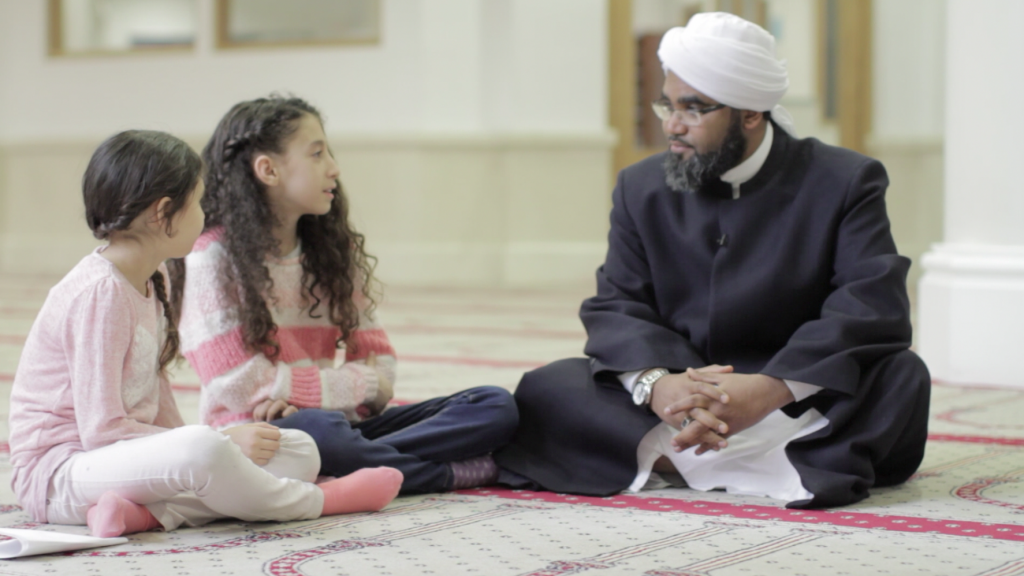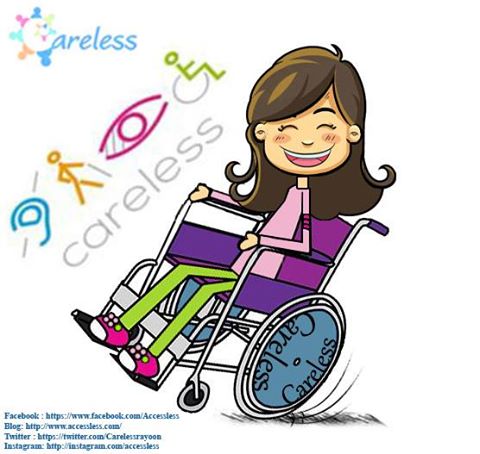Discovering Sushi Islam
By following two young girls on their voyage of discovery of Sunni and Shia, or Sushi Islam, a new documentary highlights the insanity of Islamic sectarianism.

Monday 11 April 2016
Why Can't I be a Sushi is a documentary by Hoda Elsoudani that follows the journey of two young sisters – half Iraqi-half Argentinian Niamh (10) and Sofia (8) – who are curious about the ongoing sectarian conflicts amongst Muslims.
The two girls seek to find out how and why the decisions of the past have created a growing number of extreme Muslims with an intolerant mentality. The decision to use two young girls to navigate such a complex documentary was motivated by Elsoudani's desire to take Muslims back to their roots, and to remind them of the simplicity of their religion. She felt that addressing such a complex and sensitive issue “through the eyes of two innocent yet mature children” helps connect people to “the child within and makes us reflect on our actions, behaviour and thought patterns more than if it was a documentary presented by adults”.
The documentary premiered at the Tricycle theatre in London to a packed audience on 6 March 2016 and was attended by the entire crew and cast.
Elsoudani is a British-Iraqi documentary filmmaker, humanitarian, cinematographer and the creative director of a small production company. In a world where the film industry is mostly dominated by men, it is challenging for women, but in Elsoudani's experience, people were very supportive and encouraging of her work and “even more so because there aren't many British-Iraqi female directors around.”
One challenge that she does admit to experiencing and believes that many may relate to is the “difficulty of fitting in the mainstream media and getting our voices heard as an ethnic minority.” This is one of the reasons behind her effort to continue her filmmaking journey: to pave the way for more female directors from different ethnic backgrounds to enter the scene.
The idea of the documentary started many years ago when Elsoudani was still a student and was constantly asked or pushed into a sect, though she insisted on describing herself as just a “Muslim”. “I personally have seen a lot of discrimination and misjudgement towards followers of the opposite sect. Shias would speak badly of Sunnis and Sunnis would speak badly of Shias and all the misconceptions would be flying everywhere passed from one person to another as if there were [indisputable] facts,” the director recalls. As she got older, Elsoudani discovered that the same attitudes prevailed in the workplace.
At one particular institute, Elsoudani felt that she was very much discriminated against because she simply refused to belong to either of the sects. “It's very disappointing that as Muslims we hold such forceful, judgmental mentalities and that we have forgotten the countless similarities we have in common with one another,” she admits. Elsoudani believes humanity comes first: “To treat each other with mutual respect, believe what we want to believe and leave the judgement to God.”
Elsoudani describes herself as a ‘Sushi', in the sense that she takes a bit from both sects, as a reaction to this factionalism. She added that she also felt that there were many mutual misconceptions between Islam's two main sects. “People needed to be reminded to go back to their roots and embrace the simplicity of just being a Muslim, regardless of which sect one follows.”
The sectarian conflict in Iraq impacted Elsoudani's work greatly. “When you hear about a suicide bomber who has just killed X number of souls targeting a particular sect, you're left with a bitter, angry feeling where you wish you can do something to help but you feel immensely helpless,” she explains. Elsoudani decided to direct this energy into a film that would enlighten people, especially the younger generation. She recalls how Iraqis from different faith groups and sects once lived very peacefully together. There were even mixed marriages. “People may have an opinion that the film is painting a romanticised picture of Sunnis and Shias uniting but I would say if it existed once, then it can exist again,” the filmmaker insists.
She believes strongly that we must “be less arrogant and more accepting of the other sect, and that's why in one scene in the film I decided to interview a Sunni- Shia couple.”
Ensuring that the film was approached in a balanced way was a top priority for Elsoudani, although she admits it was tricky at times because “I would often question whether I was representing each sect fairly.” The last thing she wanted to do is “add more fuel to the fire especially because it's such a sensitive subject, so I kept it 90% scripted and mainly focused on what concerns each sect has towards the other. Whether I achieved my goal or not, I would leave that for others to judge.”
Elsoudani's aim was to interview as many people with diverse opinions as possible, because she wanted to keep the film “realistic, rich in content and welcoming to different kinds of people.” She wanted to include more influential figures who could have boosted the film's impact, such as Tariq Ramadan or Sayed Fadhil Milani and even Sami Yusuf, who sings regularly about the issue of Islamic unity. Unfortunately, some declined the interviews and others didn't respond or could not make it in time for the deadline. Quite naturally and understandably, she believes some had a “fear of being misrepresented in the documentary, as it's difficult to trust everyone's journalism in our modern times.”
The point of Why Can't I be a Sushi, Elsoudani says, is not to ask why there are differences of opinion, but rather why these differences have led to violence and animosity. “To me the conflict seems to be more political than religious, although it may be hiding behind the religious language, as Dr Anas Altikriti pointed out,” she notes.
Overall, the documentary aims to “break down the misconceptions so that some kind of bridge can be built between the two sects once they realise that they have so much in common”, elaborates Elsoudani.
Elsoudani describes the reaction received from the diversely mixed audience as “phenomenal”. The Cinema theatre was packed to the seams and it seemed as though the people there were very enthusiastic and hungry for such a film. Prior to the screening most people were very supportive of the film and eagerly waiting it's release, notes Elsoudani, although she did receive a handful abusive emails from individuals “who would not care to unite Muslims and would rather wage a war than wave a peaceful flag”.
Elsoudani's passion for exploring cross-cultural issues and building bridges pushes her to persevere with her efforts to produce original works. “I mostly love addressing unspoken social or political subjects that we tend to shy away from,” she maintains, “and that's why I recently established my own production company.”
The project Elsoudani is currently working on is a short video in support of refugees.
Read Raya Al-Jadir's full interview with Hoda Elsoudani.


